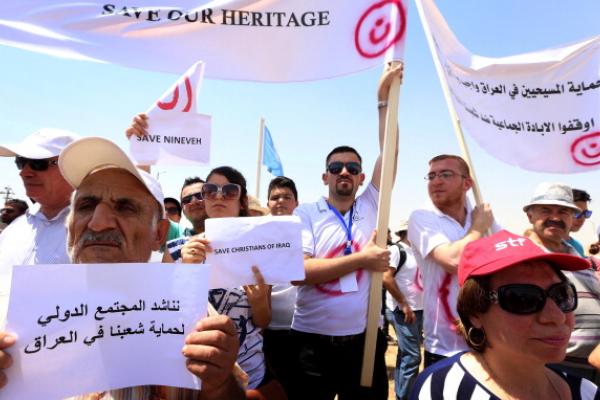When I first saw Americans joining in solidarity with Iraqi Christians through the #WeAreN hashtag and protest campaign, I was encouraged. Our team at Preemptive Love Coalition had been sounding the alarm about the targeted persecution of minorities in Iraq through private emails and social media messages for weeks, in between making urgent appeals in our effort to provide lifesaving heart surgeries for children amid the violence.
Most of our efforts were largely unsuccessful before the “Islamic State” gave Mosul’s Christians an ultimatum to (1) convert to Islam; (2) pay a submission tax; or (3) “face the sword.”
After Islamist militants began marking the homes of Christians in red paint with the Arabic letter “N” (Nazarene) for extermination or expropriation, we tried again to use our proximity to the problem in Iraq to provoke our friends in America to pay attention by tagging a photo “#WeAreN,” in which I had symbolically marked myself with an Arabic “N.”
But it was not strictly an act of solidarity with Iraqi Christians. We had the targeting of Turkmen, Yezidi, Shabak, and even Sunni Muslims in view, as well. #WeAreN was more about the marking of Christians; less about the marking of Christians.
Muslims and minorities across Iraq immediately sensed the gravity of the tactics deployed by the Islamic State: if one group is marked, we are all marked. If we stand by in silence today while others are marked for extinction, our time will come, and there will be no one left to stand for us.
In response, Muslims across Iraq joined together in protest, prayer, and viral photographs saying “We are Iraqi. We are Christians.”
Read the Full Article

